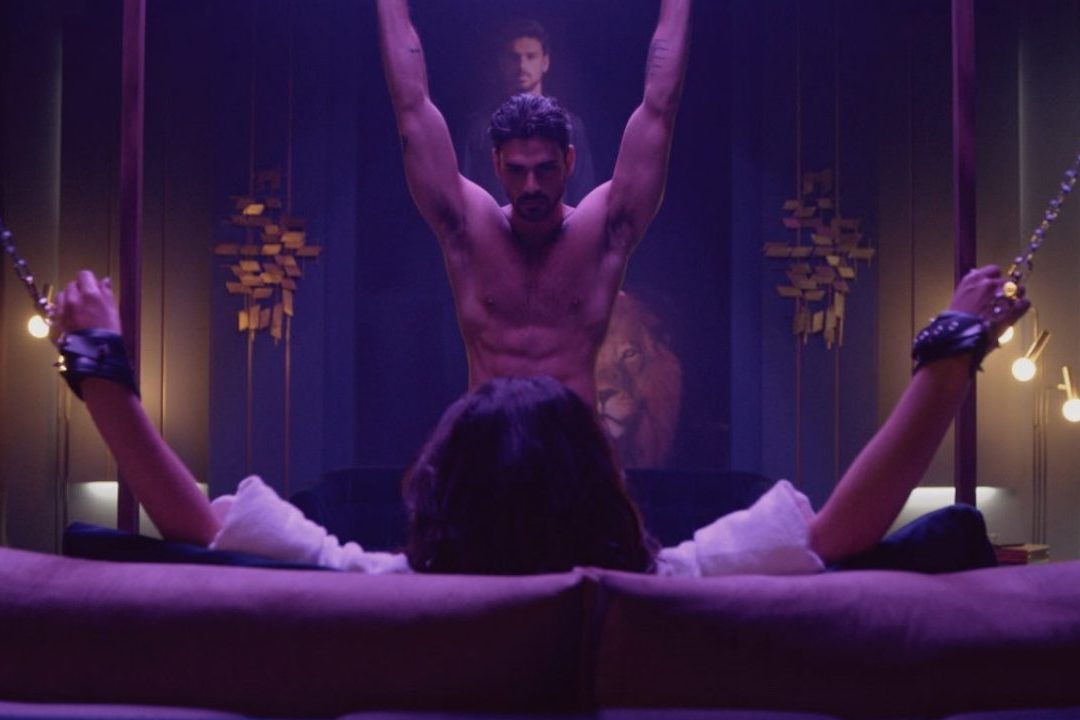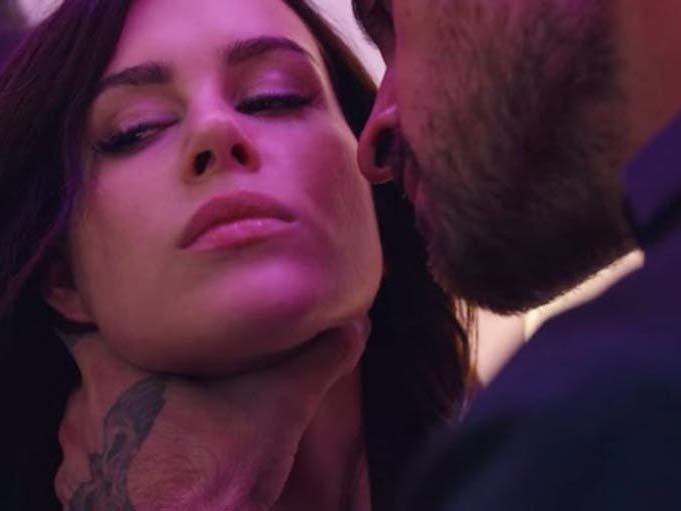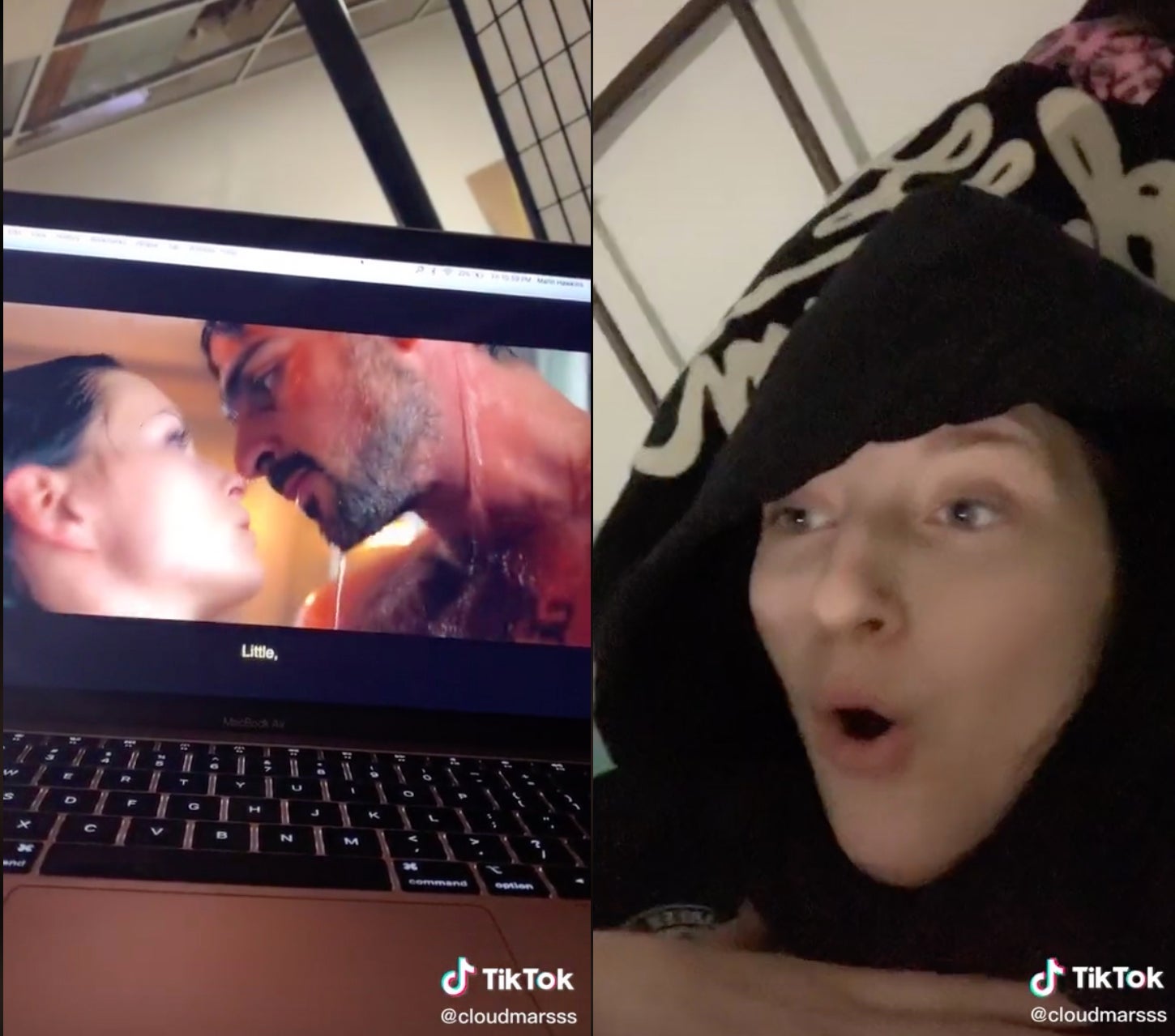The Independent's journalism is supported by our readers. When you purchase through links on our site, we may earn commission.
TikTok, Netflix’s ‘365 Days’ and the memeification of violent sex by generation Z
Videos satirising sexual violence and domestic abuse are gaining traction among young TikTok users, writes Ellie Fry


Your support helps us to tell the story
From reproductive rights to climate change to Big Tech, The Independent is on the ground when the story is developing. Whether it's investigating the financials of Elon Musk's pro-Trump PAC or producing our latest documentary, 'The A Word', which shines a light on the American women fighting for reproductive rights, we know how important it is to parse out the facts from the messaging.
At such a critical moment in US history, we need reporters on the ground. Your donation allows us to keep sending journalists to speak to both sides of the story.
The Independent is trusted by Americans across the entire political spectrum. And unlike many other quality news outlets, we choose not to lock Americans out of our reporting and analysis with paywalls. We believe quality journalism should be available to everyone, paid for by those who can afford it.
Your support makes all the difference.In June, a young woman named Kiara posted a video to TikTok in which she showed off cuts and bruises across her body. “I See Red” by Everybody Loves an Outlaw played in the background while she panned the camera across injuries on her legs and arms. A caption popped up during the video that read: “Decided to watch 365 days with my ‘guy friend’.” At the end of the video, Kiara held her fingers up in a peace sign in the mirror. The post currently has 5.7 million likes and 34.9 million views.
The film the video refers to is the Polish “erotic thriller” 365 Days that was released on Netflix this summer and has since been embroiled in controversy. Centring around themes of coercion and sexual violence, it sees Laura Biel (Anna-Maria Sieklucka) kidnapped and imprisoned by Italian mobster Massimo (Michele Morrone) who then gives her one year to fall in love with him before he will free her from his control.
The film is a Stockholm Syndrome cliche that sees Laura fall for her captor. Massimo tells Laura he will never touch her without her permission, but does so consistently by groping her, shoving his hands down her trousers, grabbing her by the throat and tying her up.
The film faced a huge backlash from domestic abuse charities and feminist organisations which accused director Barbara Bialowas of glorifying rape culture and sexual violence. Yet 365 Days has remained in Netflix’s top ten most-watched list in countries around the world since its release in June.
Welsh singer Duffy, who went public earlier this year with her own harrowing kidnapping ordeal, asked Netflix to take the film down in an open letter that condemned the streaming service for having a “careless and dangerous” approach. “It grieves me that Netflix provides a platform for such ‘cinema’, that eroticises kidnapping and distorts sexual violence and trafficking as a ‘sexy’ movie,” she wrote. A petition calling for the film to be removed has exceeded 85,000 signatures.
But for young users on TikTok, the graphic scenes in 365 Days are perfect fodder for viral reaction videos and satirical memes about violent sex. The hashtag #365dayschallenge has amassed over 20 million views at the time of writing, while #365days has gained over two billion views on the app to date, with contributions centring around jokes about sex-related injuries and assault.
Some users have shared footage of their friend’s bruises, accompanied by the caption “so my friend watched 365 days with her boyfriend”. Others joke that they’d like to be captured by Massimo, trivialising his catchphrase “Are you lost, baby girl?” to which users respond “Yes Daddy!”. One of the film’s most infamous scenes, in which Massimo violently forces Laura into an embrace, has been reenacted in numerous videos, seeing male TikTok users pretend to grab their partners by the throat.

In England and Wales, two women are killed every week by a current or former partner. While cases of domestic abuse rose by 24 per cent in 2019, courts in the UK have also seen an increased use of the “rough sex defence” otherwise known as the “50 shades of grey” defence in cases of sexual violence to justify why the violence occurred. In the past decade, killings as a result of “sex games gone wrong” have risen by 90 per cent. Two-thirds involve strangulation.
We Can’t Consent To This, a campaign group highlighting the increasing number of women who are killed or seriously injured during sex, has successfully lobbied the government to ban the defence, claiming that 45 per cent of cases in which it has been used have resulted in the “lesser charge of manslaughter, a lighter sentence or the death not being investigated as a crime at all”. But while this is a significant step forward, campaigners warn that the films like 365 Days diminish the seriousness of sexual assault and coercion and could have real-life implications for young people who view these behaviours as normal.
We warned at its release that 365 Days minimises serious violence and makes rape seem ‘romantic’. And now it’s inspired young women to show real (or realistic) injuries, for millions of likes on TikTok
Videos satirising sexual violence and domestic abuse are gaining a lot of traction on TikTok. The platform’s users have a history of performative domestic abuse, with the “mugshot makeup challenge” going viral earlier this year, garnering 605 million views in posts that saw people use makeup to create the appearance of black eyes and neck bruises to pose for a fake mugshot photo.
Other posts that simulate coercive control in relationships, domestic violence and even murder can be found under the point of view (POV) hashtag, a trend that sees users recreating extreme scenarios under the justification of comedy.
With over 800 million active users worldwide, 16-24-year-olds making up 60 per cent of its membership and with users as young as 13 years old, TikTok is the preferred social media platform for young people. Like all social media platforms, the app is optimised for engagement – the nature of its algorithm means that anyone has the potential to go viral easily. This is particularly pertinent when you consider that women aged between 20-24 are at a significantly higher risk of domestic abuse compared to women aged 25 and over, putting the average TikTok user in the higher risk group.

TikTok user Jennifer Jordan went viral last year after using makeup to create the appearance of a black eye and strangulation bruises in a video captioned “when you go on a date with an abusive boyfriend and it goes wrong”. Jordan faced backlash from other TikTok users who claimed the video glamourises domestic abuse, but she tells The Independent that she actually made it to raise awareness, stressing that POV videos are designed to be fictional.
I don’t think it’s what you should portray to young people. Like ‘hey this is what sex is about, hitting each other’, I don’t think that’s responsible
She also says that some of the responses to her video were positive: “A lot of people disagreed with the video in the comments, but others messaged me to explain they’d experienced something similar and were happy that I was spreading awareness.” Though she does say she wishes that she included a trigger warning on her video to signify the sensitive content.
Despite her previous videos, Jordan says she believes that showing injuries from sex could be problematic for young viewers: “I don’t think it’s what you should portray to young people. Like ‘hey this is what sex is about, hitting each other’, I don’t think that’s responsible.”
Jordan adds that she doesn’t understand how 365 Days has sparked the recent TikTok trend, saying, “I watched the movie and I don’t see anyone being physically abused to the point where they have bruises. But I guess they [TikTok users] were trying to show that they were having great sex after watching the film.”
Psychotherapist Silva Neves, who specialises in psychosexual and relationship therapy, argues otherwise: “The sexual violence and sexual coercion glamorised in the movie is an extreme version of misogyny. These TikTok users are buying into an old fairy tale narrative of a desire to be the chosen one, to be taken and protected by the alpha male, which is a deeply misogynistic concept, yet is one that is engrained in the collective psyche of our society.”
When contacted by The Independent for comment, many TikTok users chose not to respond. TikTok also refused to comment on the videos, but it is understood that they do not constitute a violation of its community guidelines. These guidelines state that while TikTok prohibits “content that promotes acts of physical harm, such as assaulting or kidnapping”, it makes an exception for “content that provides value to the public, such as educational, scientific, artistic, and newsworthy content”.
Another 20-year-old user Amelia Bell created a similar video, but shared it with a charity helpline in the caption after hearing about the spike in domestic abuse cases during lockdown in the UK. She also says that survivors of domestic abuse thanked her for the post. Defending her decision to imitate injuries in her video, Bell tells The Independent: “In films and TV programmes, people are made to look like they have been beaten up, but people don’t refuse to watch them because of it. I do come from a drama school background, so this was acting for me.”
Sharing jokes about sexual violence on social media isn’t new – studies show that memes often work to reinforce misogynistic tropes about women, deriving humour from issues such as sexual assault and domestic violence. But while young men are often the dominant sharers of such content, the latest TikTok trend centres around young women memeifying violence perpetrated against themselves. This makes for troubling viewing for feminist organisations who are linking the trend to the normalisation of violence in mainstream sex, which they believe is shaping young people’s perceptions of consent, sexuality and gender equality.
We Can’t Consent to This is concerned that this trend could be dangerous for young people who don’t understand the potentially fatal implications of sexual acts like choking and strangulation. Fiona Mackenzie, founder of the organisation, says: “We warned at its release that [365 Days] minimises serious violence and makes rape seem ‘romantic’. And now it’s inspired young women to show real (or realistic) injuries, for millions of likes on TikTok.”

Gail Dines, a professor of sociology and founder of Culture Reframed, an organisation working with parents and schools to educate young people on the impacts of pornography, believes the normalisation of violent sex in mainstream culture has two root causes: “Hypersexualised media and porn work to groom young people into internalising the belief that ‘rough sex’, is normalised, legitimate and an accepted form of sexual play. Boys learn this from media, video games, and mainstream hardcore porn, and girls use porn as a guide to what boys and men want.”
The TikTok videos of girls showing off their bruises is a perfect example of how deep our porn culture has infiltrated the sexual identities of girls and young women
Research into pornography usage amongst teenage boys shows a link between pornography that depicts violence with increased degrees of sexually aggressive behaviour, while other evidence suggests that pornography has led to pressure on women and young girls to behave a certain way during sex. One study of 14- to 19-year-olds found that young women who viewed pornographic videos were at a significantly greater risk of being victims of sexual harassment or sexual assault.
“The TikTok videos of girls showing off their bruises is a perfect example of how deep our porn culture has infiltrated the sexual identities of girls and young women. It is a way to signify to males that they are the ‘cool’ girls,” says Dines. The sociologist says that a robust sex education which unpacks the influence of pornography on society is needed in schools to interrogate young people’s perceptions of sex, and that compulsory lessons in the UK currently don’t go far enough.
Without a syllabus that addresses these particular issues, Neves is concerned that young people lack an understanding of the framework of domination in sex: “While BDSM may be a good and wanted sexual practice, sexual violence is not. I worry that the young people in the TikTok videos have no knowledge of BDSM and therefore cannot understand the difference between sexual violence and good sexual health.”
As TikTok continues to grow as the dominant social media platform for young people, campaigners are calling for the platform to regulate content like the 365 Days challenge to safeguard young viewers. Meanwhile, the film remains available to stream on Netflix and the hashtag #365dayschallenge continues to rack up views.
When contacted by The Independent, the streaming service refused to comment.
Join our commenting forum
Join thought-provoking conversations, follow other Independent readers and see their replies
Comments